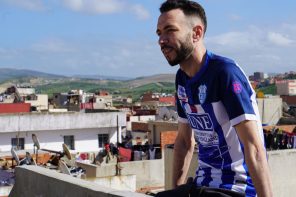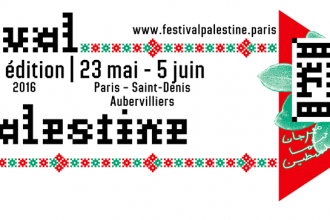From Idlib, to Tartous, Homs, Damascus and even Norway, it is with a message full of meaning and a determined purpose that Abodi, Nazeer, Sam, Mona, Mohamad, Inger and Ahmad – members of Assa’aleek – wander through the Syrian folklore while revivifying it.
Swayed by a multitude of horizons, it was in Beirut when the spell was cast upon the members of the Syrian music band, « Assa’aleek » // » الصعاليك « .
We are all partners in this life.
The earth belongs to us and music is for everyone.كلنا شركاء في الحياة، الأرض لنا و الموسيقى للجميع
The band « Assa’aleek » was first founded by Mohamad Khayata and Ahmad Naffory, in 2013. Plural of « sa’alook », the term « Assa’aleek » refers to someone modest, with good intentions, a « brigand of benevolence. ». The band compares itself to the marginal poets and knights of the pre-Islamic era: “Al Saalik”, defying society and the traditional values in their verses to pay justice to the most deprived. The goal of this contemporary version is to follow the same path through their lyrics and music.
Art, music, shouldn’t be solely intended to those who can afford it.
It should be open to everyone, like peace, beauty, love, happiness.
Today, the group consists of Sam Abdullah, Mohamad Khayata, Abdullah Jatal, Inger Hannisdal, Mona Al Merstany and Nazeer Salama.
Sam Abdullah (vocal, oud and composition) and Abdullah Jatal (percussions and chorus), from Homs and Idlib, left Syria for Beirut long before the war. Sam, to develop his artistic career and Abdullah for his psychology studies. As for Nazeer Salama, musician, (guitar), from Tartus, on the Syrian coast, he moved to Beirut during the Syrian war – like Mona Al Merstany, artist (vocal), Mohamad Khayata, artist, (percussions and chorus) and Ahmad Naffory (vocal, guitar and composition), all from Damascus. Finally, Inger, musician, (violin, rababa, percussions, chorus), from Norway, moved to Lebanon in 2014 to continue her studies on Arab music.
Even though they did not all flee it, the war has had a huge impact on them, in a different way. However, they approach things in a wonderfully positive attitude. If they hadn’t met in Beirut; they would not have formed their musical band. And, most importantly, they take it as a lesson. Borders are no more than an illusion for them now.
We are bigger than borders, we are equal. We do not care about the education, religion, sexuality or gender, of one another. We are all human.
This is the reason why they refuse to take sides in this war other than the side of the people. It is through their texts, their rekindled covers that they share their messages with the world.
We consider our art as a form of responsibility towards the Syrian culture.
With the beautiful “weapon” of peace that is music, they chose to fight against sectarianism, violence and oppression. They ought to remedy to negative stereotypes and to the destruction currently affecting Syria and its heritage.
Intertwined to the melody of the oud, mingled with that of the guitar, the violin, and the different percussions, the voices of Mona and Sam, wreathed to the chorus, charm us in the illusion of a journey, and our ear for music is delighted by the Orient.
Since the war, it has become difficult, almost impossible, for a Syrian to get a visa and travel. This is why Assa’aleek hope that their music will speak for them, that, through it, their thrive will show and they will be heard.
Even without a visa, they are able to make us wander by their softness, their humor, their poetry.
Follow Assa’aleek on Facebook and Instagram.
Find the French version of this article here.







